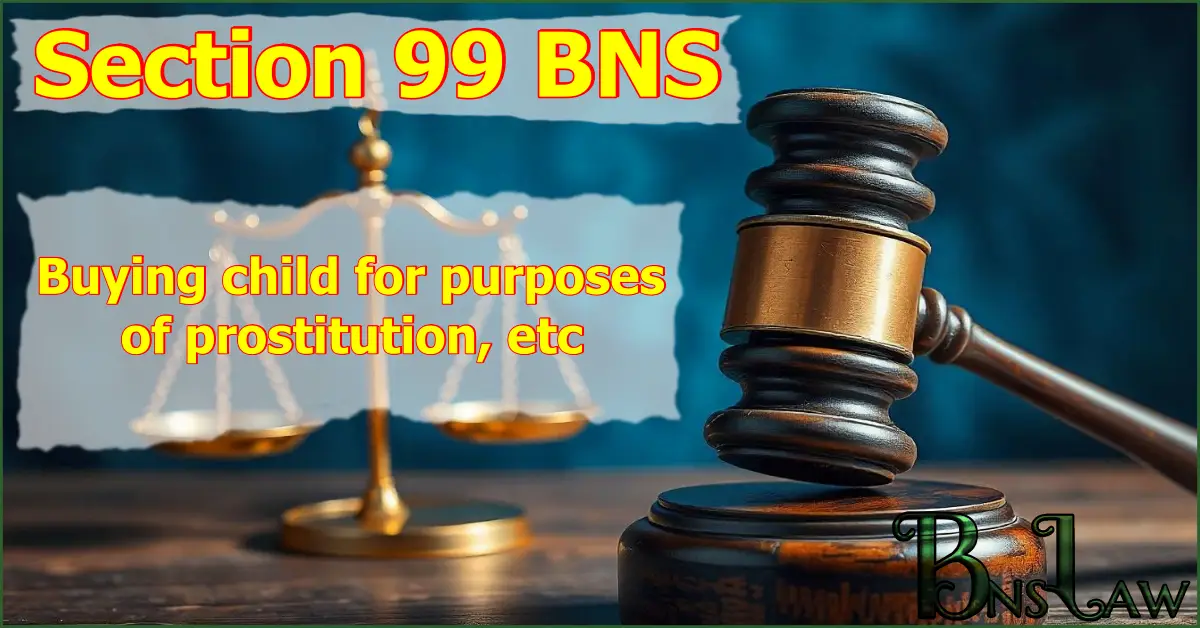Section 99 BNS | BNS 99 | BNS Section 99
Whoever buys, hires or otherwise obtains possession of any child with intent that such child shall at any age be employed or used for the purpose of prostitution or illicit intercourse with any person or for any unlawful and immoral purpose, or knowing it to be likely that such child will at any age be employed or used for any such purpose, shall be punished with imprisonment of either description for a term which shall not be less than seven years but which may extend to fourteen years, and shall also be liable to fine.
Explanation 1— Any prostitute or any person keeping or managing a brothel, who buys, hires or otherwise obtains possession of a female under the age of eighteen years shall, until the contrary is proved, be presumed to have obtained possession of such female with the intent that she shall be used for the purpose of prostitution.
Explanation 2— “Illicit intercourse” has the same meaning as in section 98.
READ OTHER SECTIONS OF CHAPTER V — OF OFFENCES AGAINST WOMAN AND CHILD
FAQs of BNS Section 99
-
99 BNS punishment and fine
Punishment and fine under Section 99 of the BNS: Imprisonment for not less than 7 years but which may extend to 14 years and fine.
-
99 BNS cognizable or not
The offence under Section 99 of the BNS is cognizable.
-
99 BNS bailable or not
The offence under Section 99 of the BNS is non-bailable.
-
99 BNS trial court
Offence specified in Section 99 of the BNS is triable by the Court of Session.
Important Points
- Cognizable Offences: These are offences where a police officer can arrest a person without a warrant.
- Non-Cognizable Offences: These are offences where a police officer cannot arrest a person without a warrant.
- Bailable Offences: These are offences where the accused can get bail from the police station itself. All bailable offences are listed in the First Schedule of the Bharatiya Nagarik Suraksha Sanhita (BNSS).
- Non-Bailable Offences: Offences in which bail is not granted directly from the police station but after hearing the case in the court, the judge decides when bail will be granted. All non-bailable offences are listed in the first schedule of the Bharatiya Nagarik Suraksha Sanhita (BNSS).
- In the above FAQ, “trial court” means the court that has jurisdiction to try the offence.
- In the above FAQ, the expression “Magistrate of the first class” and “Any Magistrate” does not include Executive Magistrates.
Read other Sections of the BNS
Reference Link: New Criminal Laws (BNS), Ministry of Home Affairs







